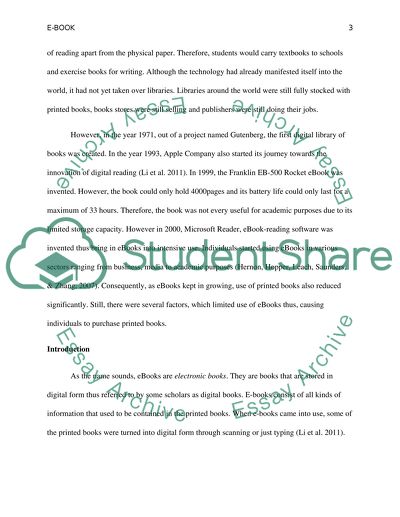Cite this document
(“Ebooks use in the Academic Field Research Paper”, n.d.)
Retrieved de https://studentshare.org/information-technology/1639783-ebooks-use-in-the-academic-field
Retrieved de https://studentshare.org/information-technology/1639783-ebooks-use-in-the-academic-field
(Ebooks Use in the Academic Field Research Paper)
https://studentshare.org/information-technology/1639783-ebooks-use-in-the-academic-field.
https://studentshare.org/information-technology/1639783-ebooks-use-in-the-academic-field.
“Ebooks Use in the Academic Field Research Paper”, n.d. https://studentshare.org/information-technology/1639783-ebooks-use-in-the-academic-field.


